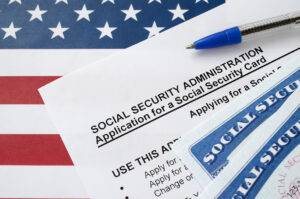
IRS PROVIDES A FEW MORE ANSWERS IN REV. PROC. 2019-38
The 20% QBI deduction is only allowed for qualified trade or business income. The bothersome question since §199A was enacted was if and when a rental activity is a trade or business. The IRS issued Rev. Proc. 2019-38 that provides a safe harbor for determining if a rental activity is a trade or business for purposes of the §199A deduction.

SAFE HARBOR
To use the safe harbor the taxpayer is required to:
- Maintain separate books and records for each rental activity (or the combined enterprise if aggregated together),
- Demonstrate that 250 hours or more of “rental services” per year for the activity (or combined enterprise) were performed by the owners, employees or independent contractors with respect to the enterprise, and
- Maintain contemporaneous records, including time reports or similar documents, regarding (1) hours of all services performed, (2) description of all services performed, (3) dates on which such services are performed, and (4) who performed the services. For these purposes, rental services include advertising to rent, negotiating and executing leases, verifying tenant applications, collection of rent, daily operation and maintenance, management of the real estate, purchase of materials, and supervision of employees and independent contractors.Note: In a change from its Notice 2019-7, the contemporaneous record requirement now begins in 2020.
- Include a statement attached to a timely filed return (or an amended return for 2018 only) on which it claims the §199A deduction or passes through §199A information that the requirements in this revenue procedure have been satisfied. The statement must be signed by the taxpayer, or an authorized representative of an eligible taxpayer or RPE who has personal knowledge of the facts, which states: “Under penalties of perjury, I (we) declare that I (we) have examined the statement, and, to the best of my (our) knowledge and belief, the statement contains all the relevant facts relating to the revenue procedure, and such facts are true, correct, and complete.”Tax practitioner planning. While we hoped for something different, the revenue procedure does not remove this requirement. We must still print out a safe harbor statement for the taxpayer to sign and then attach that signed statement to the e-filed return.
EXCEPTIONS
Real estate used by the taxpayer (including an owner or beneficiary of a relevant pass-through entity (RPE) as a residence for any part of the year under §280A is not eligible for this safe harbor. Property leased under a triple net lease (including the owner or beneficiary of an RPE) is not eligible for the safe harbor. A triple net lease includes a lease agreement that requires the tenant or lessee to pay taxes, fees, and insurance, and to be responsible for maintenance activities for a property in addition to rent and utilities. It also includes a lease agreement that requires the tenant or lessee to pay an allocable share of the taxes, fees, and insurance, and maintenance (CAMs) related to the portion of the property rented.
AGGREGATION
The taxpayer may choose to aggregate commonly owned rentals into one enterprise, perhaps making it easier to meet the 250-hour test (or the UBIA limit for high income individuals). However the regulations do not allow commercial rentals and residential rentals to be aggregated (§1.199A-4(d), ex 17). The revenue procedure provides that an interest in mixed-use property may be treated as a single rental real estate enterprise or may be bifurcated into separate residential and commercial interests.
Once a taxpayer or RPE treats interests in similar commercial properties or similar residential properties as a single rental real estate enterprise under the safe harbor, the taxpayer or RPE must continue to treat interests in all similar properties, including newly acquired properties, as a single rental real estate enterprise when the taxpayer or RPE continues to rely on the safe harbor. While the taxpayer or RPE must continue to aggregate in the same manner in subsequent years, if the taxpayer or RPE did not aggregate in year one, the taxpayer or RPE may aggregate in a future year.
FORMS 1099
Section 199A regulations require that if the taxpayer or RPE treats the rental activity as a trade or business, the taxpayer or RPE must file required Forms 1099 (see page 21 of the Preamble to the final §199A regs.)
EXAMPLES AND CLIENT LETTERS
For examples on how the rev. proc. applies and for sample client letters that explain the rules to your rental property owners and their property managers, attend our Federal Tax Update Seminars provided in city near you, or as Webcasts or Self-Study.
Recent Stories
Next Up...
- |
- TaxByte
- |
- TaxByte
- |
- TaxByte





